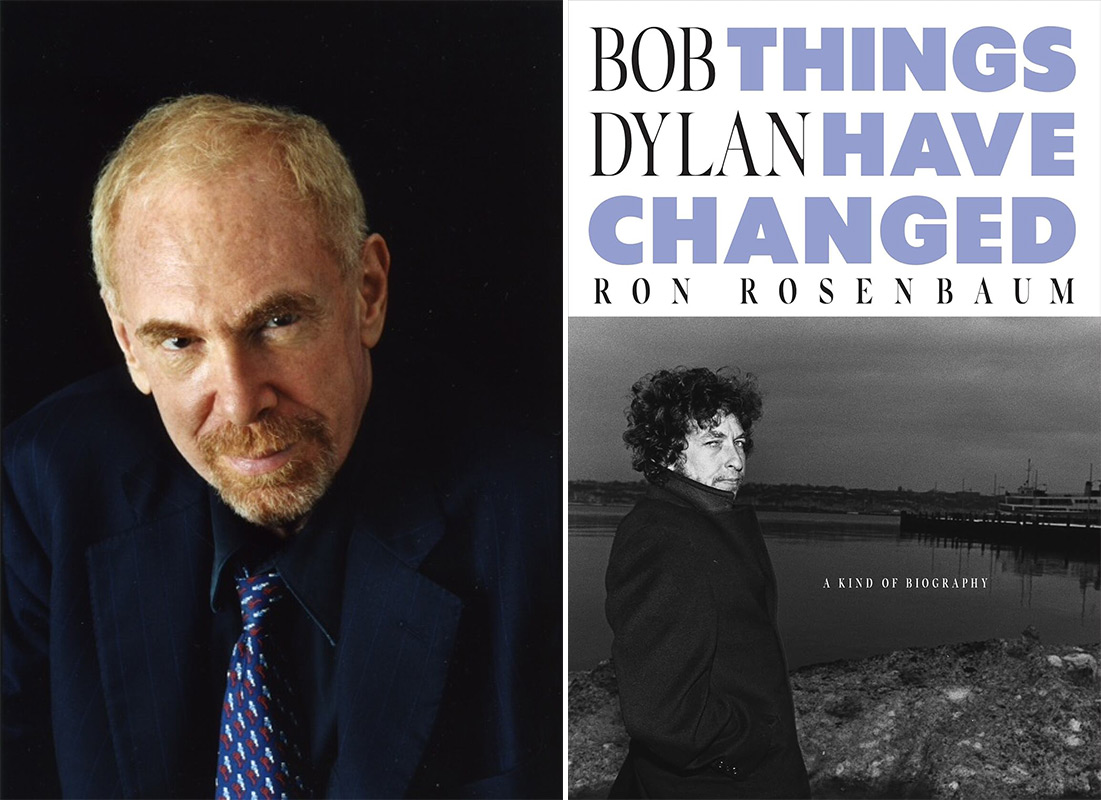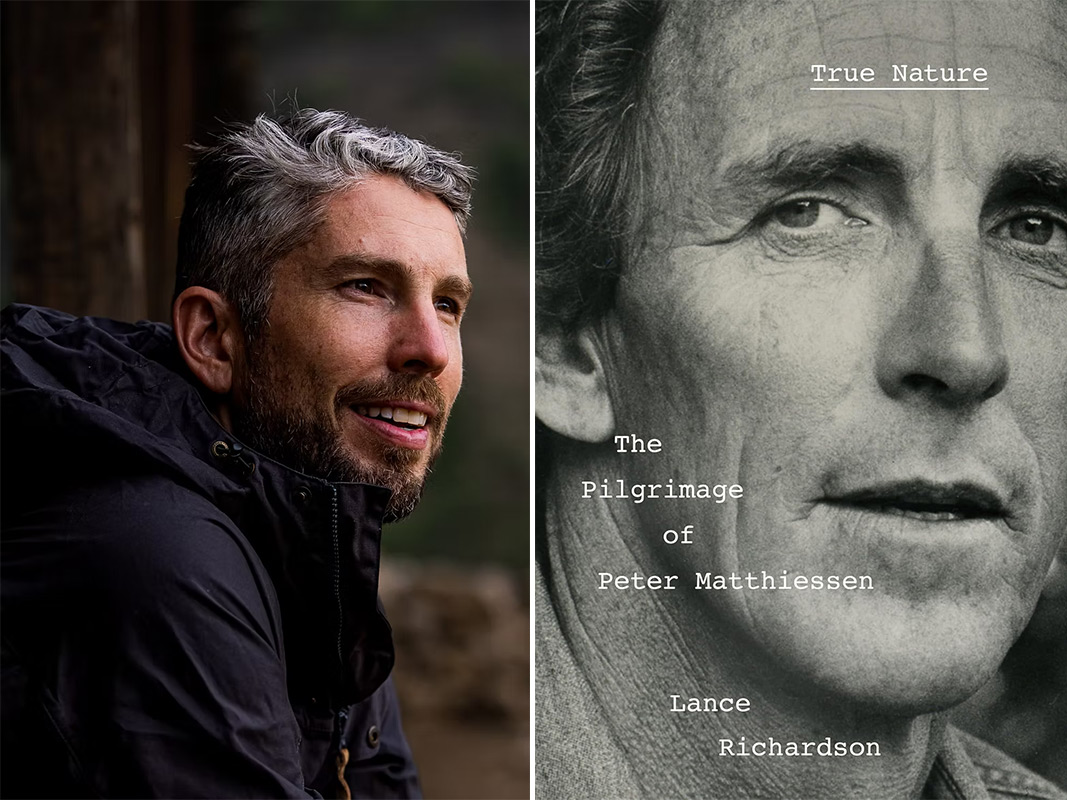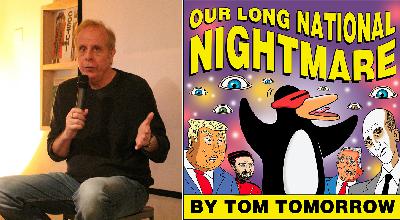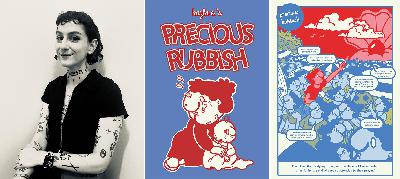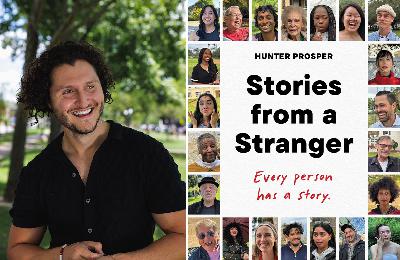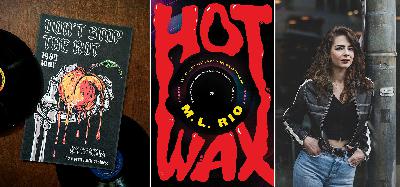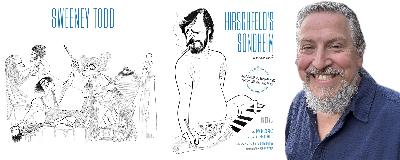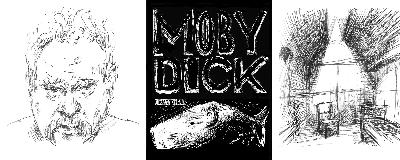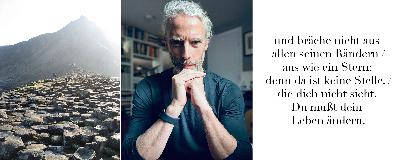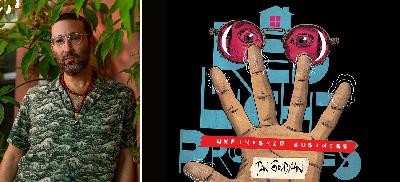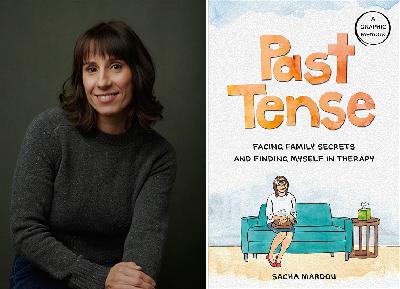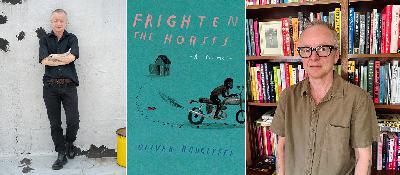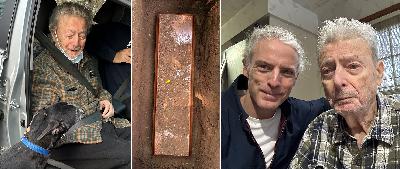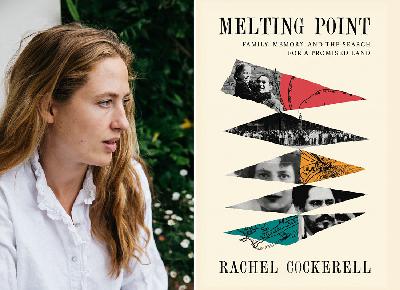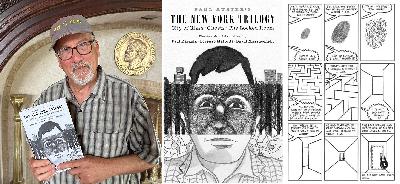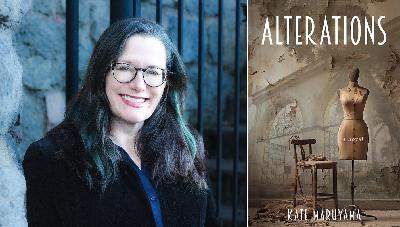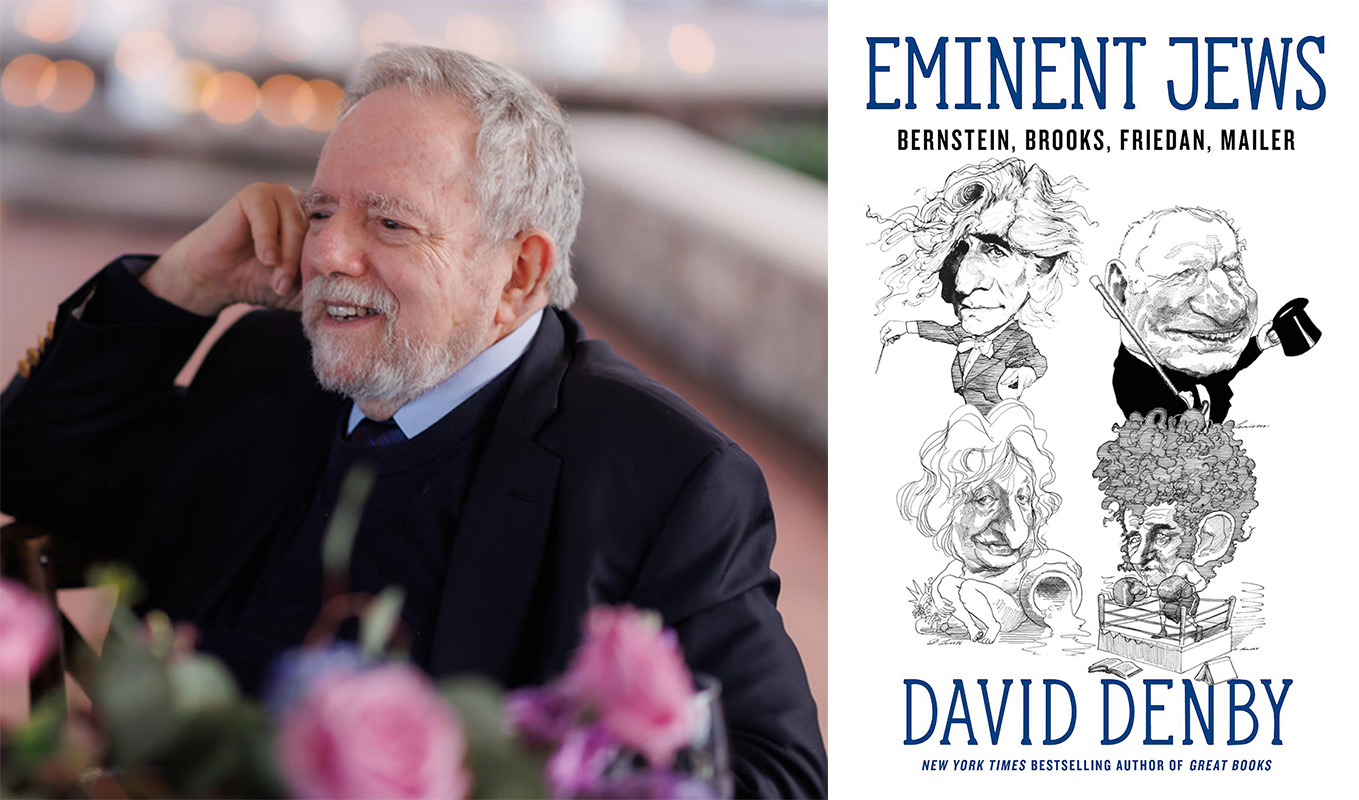Discover The Virtual Memories Show
The Virtual Memories Show

729 Episodes
Reverse
One of my fave writers, Ron Rosenbaum, returns to the show to celebrate his amazing new book, BOB DYLAN: Things Have Changed (A Kind Of Biography) (Melville House Press). We talk about how his lifetime fandom of Dylan led to this book, why he opted for a biographical meditation over strict biography, the week he spent with Dylan in the '70s for a Playboy interview, what our response to Dylan's songs say about us, and how he got over his sense of betrayal when Dylan joined a Jesus-cult for a few years. We get into his insight into Dylan's Nobel acceptance and the Rosebud-moment therein, the question of theodicy (radical evil) and Dylan's argument with God, Ron's experience falling in love with someone to Dylan's songs, and how Dylan's post-Jesus songwriting methods became a reflection of his One-Mind consciousness. We also discuss authenticity vs. sincerity, the discontinuity of being, the impact of Salinger & Dylan on American language and outlook, Ron's top 20-ish of Dylan's songs, the 4+-hour movie Dylan made in the '70s and how it may have led to his crack-up (and why Ron thinks it should be reissued), and more. Follow Ron on Twitter • More info at our site • Support The Virtual Memories Show via Stripe, Patreon, or Paypal, and subscribe to our e-newsletter
Writer Lance Richardson rejoins the show to celebrate his magnificent new biography, TRUE NATURE: The Pilgrimage of Peter Matthiessen (Pantheon). We talk about his youthful introduction to Peter Matthiessen via The Snow Leopard, how this project grew beyond his (& his publisher's) original concept, the health risks of following PM's trek through Nepal to the Crystal Monastery and the fleetingness of his time there, and which of PM's many hyphens he focuses on (novelist-naturalist-Zen roshi). We get into Matthiessen's journey into American Zen, the problematic nature of race and gender in PM's life and work, PM's fixation on Bigfoot and how that shifted to the notional, the Paris Review/CIA connection that everyone asks about, and how Matthiessen's widow came to trust Lance with the project. We also discuss his fave of Matthiessen's novels, the financial challenges of long-term writing projects (this one took eight years), getting over self-doubt and learning from his previous biography of Tommy Nutter, enjoying the research-hunt of biography more than the writing, what his literary upbringing in Australia was like, whether he came to like or despite Matthiessen, and more! Plus, I monologue-ramble about my 20,000th day on earth and the pod-retirement of Marc Maron! Follow Lance on Bluesky and Instagram and listen to our 2018 conversation • More info at our site • Support The Virtual Memories Show via Stripe, Patreon, or Paypal, and subscribe to our e-newsletter
Political cartoonist Tom Tomorrow (a.k.a. Dan Perkins) is back as we celebrate his new Kickstarter project, OUR LONG NATIONAL NIGHTMARE (closing Oct. 30, 2025, so GO SUPPORT THAT), collecting 5+ years of weekly This Modern World cartoons! We talk about how he keeps his sanity (well, tries to), what it was like to look back at the past half-decade week by week, why he decided not to go down a rabbit-hole of extra material for the project, and what it means to have a bookshelf of his strips (and not just pixels on a screen). We get into the importance of his Sparky's List newsletter as the media landscape keeps withering away, his writing process and how the, um, of this administration compels him to build some flexibility each week, and the realization that he's made a major body of work over the past four decades. We also discuss his major life changes since we last recorded, the good and bad of Being Very Online, his love of Martin Cruz Smith's Arkady Renko mystery novels, what makes him a New Yorker, and the impossibly fraught question of what brings him joy. Follow Tom Tomorrow on Bluesky and Instagram, subscribe to Sparky's List, and check out his merch from Topatoco and Threadless. Oh, and you can follow This Modern World on TinyView and/or Daily Kos • More info at our site • Support The Virtual Memories Show via Stripe, Patreon, or Paypal, and subscribe to our e-newsletter
With her debut graphic novel, PRECIOUS RUBBISH (Fantagraphics), artist and designer Kayla E explores and investigates the trauma of her upbringing, the fragments of her memories, and the process of reintegration. We talk about why comics were the perfect form for this project, how she found her iconography and the postwar children's comics style for it, what it was like to uncover her memories and get them on the page, how it feels to give her story to her readers, and how she's learning to respond when her readers share their trauma with her. We get into her comics-roots, what it was like to hit up her comics heroes, how she felt the moment Mark Newgarden told her she had a book on her hands, why Harvard is bad for getting a comics education, how her work as a graphic designer dovetailed with the incredible production of Precious Rubbish. We also discuss her recovery and her conversion experience, why her Bible kinda begins and ends with the Book of Job, her years of worry that she'd turn out as psychopathic as her parents and brother, why the Sopranos is her favorite work of art, what it means to not be loved by one's parents, and more. Follow Kayla on Instagram • More info at our site • Support The Virtual Memories Show via Stripe, Patreon, or Paypal, and subscribe to our e-newsletter
ICU nurse Hunter Prosper joins me this week as we celebrate his wonderful new book, STORIES FROM A STRANGER: Every Person Has a Story (Simon Element). We talk about the ICU experiences that led him to start talking to strangers in public and asking them deep questions about their lives five years ago, how those conversations have changed him, why he started sharing them online, how he figured out the questions he wanted to ask, and how long it takes just talking to someone before they're both comfortable with him recording the questions. Along the way, we get into how we each approach the dance of having a conversation with someone we've never met, what it was like to discover he had an audience, whether people speak differently when the phone comes out, and how it felt to see a book-length version of this project. We also discuss how he wants to explore new ways of making his videos, how it felt to discover there's a group-chat of his past strangers (that he's not invited to), why he'll always be a nurse first and not a 'content creator,' going traveling with his fiancee to do interviews and photos for the book, what he sees when he looks in the mirror, and more. Oh, and things get heavy once I tell him it's okay to ask me some questions. Follow Hunter and Stories From A Stranger on TikTok, Youtube, Instagram and Facebook • More info at our site • Support The Virtual Memories Show via Stripe, Patreon, or Paypal, and subscribe to our e-newsletter
With her amazing new novel, HOT WAX (Simon & Schuster), author, critic, and inveterate road-tripper M.L. Rio evokes the rock scene of the '80s and the travails of the not-quite-Almost-Famous band GIL AND THE KILLS. We talk about the redemptive & destructive power of rock & roll, how music is inseparable from her writing process, the challenge of writing about live performance, why it makes sense that "the girl with the Shakespeare degree is writing a rock & roll novel," and why she couldn't gloss over the sweatiness of touring and road trips. We get into the literature gap of people in their 30s (esp. women), how this novel evolved with her over a decade, what it's like operating in male-dominated spaces like music criticism, why she's going out on a 34-city book tour and trying to make it as fun as a rock tour (including merch!), what it means to be an ethical eavesdropper, how she stays safe (and well fed) while solo road-tripping around America, and the joy of radio crime drama. We also discuss the obsessiveness of record collectors, the loss of nuance in literature, the warping influence of Catholicism (and the perils of reading Shakespeare and Bret Easton Ellis way too young), our first concerts (her: Green Day, me: Asia), and a lot more. Follow M.L. on Instagram, Facebook and Bluesky • More info at our site • Support The Virtual Memories Show via Stripe, Patreon, or Paypal, and subscribe to our e-newsletter
Curator and archivist David Leopold rejoins the show for a wide-ranging talk centered on the amazing new HIRSCHFELD'S SONDHEIM: A Poster Book (Abrams ComicArts). We talk about David's decades as Hirschfeld's archivist, Sondheim's love of Hirschfeld's work, the process of making his first book of Hirschfeld's art that focuses on a single creator, the connections between Al & Sondheim in David's text pieces for the book, and the joy of getting an intro from Bernadette Peters. We get into the work that the Hirschfeld Foundation does for regional theaters, why the drop-off of arts criticism is a disaster for culture, how younger people experience and appreciate Hirschfeld's art, and the time David held a seance at the Algonquin to promote the Hirschfeld Broadway Tarot. We also discuss our all-time fave Prince songs, what it's like being an archivist in a post-object world, the Steve Cohen magic performance that blew his mind, his new exhibitions at the Studio of Ben Solowey, how the next generation of theater organists (!) is getting trained, how aware Sondheim and Hirschfeld were that they were making history in their lifetimes, and more. Follow David & the Al Hirschfeld Foundation on YouTube, Tiktok, Facebook, Instagram, Bluesky • More info at our site • Support The Virtual Memories Show via Stripe, Patreon, or Paypal, and subscribe to our e-newsletter
It's been a year since his last episode, so what's artist Dmitry Samarov been up to? Plenty! We talk about his new project of redesigning and illustrating public domain books, why he started off with the White Whale itself, and why Babbitt! was next in line, what the common themes are among the six books he's illustrated since this project began, and how it all ties into his reaction to the 2024 election. We get into what it's like working with publishers after controlling his own books for years, how he discovered James Hogg's The Suicide's Grave on SOME OTHER PODCAST (okay, it was Beyond The Zero), how he's exploring visual interpretation and different tools with each book, and how this project has him reading and rereading differently than he used to. We also talk about how he looks back at his art in the wake of his self-monograph, how he got into a relationship with someone after a long time solo (after a showing of why Cronenberg's not-good The Shrouds), what other books he's considering illustrating, his new series of 'zines about bookselling, the joy of Moby Dick's tangents, and more. Follow Dmitry at his site and through his weekly newsletter, and buy some books from his Ebay shop • More info at our site • Support The Virtual Memories Show via Stripe, Patreon, or Paypal, and subscribe to our e-newsletter
No guest this week, so it's time for our first Ask Me Anything (AMA) episode since 2019! Past guests and pals peppered me with questions about the podcast, my reading habits, menswear aesthetics, mental health, comics, hair care, keeping a journal, work/life balance or lack thereof, the one episode I think people are sleeping on, Star Trek vs. Star Wars, the superpower I wish I had, and a lot more. I dish some pod-secrets, talk about the episodes that will never air, and tell you where I buy my underwear, so go listen! Follow me on Bluesky and Instagram • More info at our site • Support The Virtual Memories Show via Stripe, Patreon, or Paypal, and subscribe to our e-newsletter
With RED LIGHT PROPERTIES: Unfinished Business (Kinjin Storylab), writer/cartoonist Dan Goldman brings us a wildly entertaining graphic novel of midlife, the afterlife, and the south Florida real estate market. We talk about how the concept for RLP grabbed hold of him 20+ years back & never let go, why the story had to take place in/around Miami, how his work in video games and TV/movies affected his world-building in comics. We get into the peak life experiences of making this book, the transition from digital to print, why he set the book in landscape, the role of the "invisible" elements of comics design, the impact Scott McCloud's Reinventing Comics had on him, why the next season of Red Light Properties — Gut Renovations — will be "singles, not albums," how it felt to work with Kickstarter and control every aspect of Unfinished Business' design & production, all while reveling in our shared comic loves. We also discuss turning 50, whether cocaine is ever a good story device, his sensitivity to hauntings, why he needs to quit comics every so often, the effect The Invisibles had on him (esp. Grant Morrison's letter columns), the paradox of choice and the joy of the analog-hunt, his prose writing and why he tells stories that are 83% true, and plenty more. Follow Dan on Bluesky, Instagram and YouTube • More info at our site • Support The Virtual Memories Show via Stripe, Patreon, or Paypal, and subscribe to our e-newsletter
With SONGS FOR OTHER PEOPLE'S WEDDINGS (Abrams Press), writer David Levithan and singer-songwriter Jens Lekman bring the collaborative alchemy, as 20 years of fandom/friendship lead to this wonderful novel about a Swedish singer-songwriter — J — who finds a side-career playing original songs at people's weddings. We talk about the power of a great song, how David & Jens traded writing prompts with each other — a wedding song leading to a chapter, a chapter leading to a wedding song —, discovered how differently they each look at love, and managed to fuse that tension into a story of how love changes over time. We get into the differences between stories and songs, how Jens had fallen out of love with music (blame Spotify) and how this book helped him fall back in love with it, whether they'll write a sequel about funerals, and how Jens' song, "If you ever need a stranger (to sing at your wedding)," led to his side-career as a wedding singer. We also discuss Jens' new album inspired by the book, David's upcoming history of the AIDS era, the ways collaboration helps create new structures, what it means to be alone, how our private lives can get drowned by our public ones, their book/music tour and the importance of face-to-face interaction, the value of emotionally honest fiction, and more, including numerous Nick Cave references. Follow Jens on Bandcamp, Facebook and Instagram, and check out David's FAQs and IAQs • More info at our site • Support The Virtual Memories Show via Stripe, Patreon, or Paypal, and subscribe to our e-newsletter
With PAST TENSE: Facing Family Secrets and Finding Myself In Therapy (Avery), cartoonist Sacha Mardou brings us a phenomenal graphic memoir about the midlife process of overcoming lifelong traumas and anxiety. We talk about her decision to to make her therapy process (& sessions) public, first as online comics and then as a Past Tense, the benefits of the Internal Family Systems (IFS) model, what it took to violate the English stiff upper lip and admit that she had problems and needed therapy, and her mother's Jehovah Witness conversion and how she's still sifting through the damage of that. We get into how therapy changed her relationship to her daughter, why corniness is no reason to avoid addressing/admitting one's inner child (and the work I needed to do to truly appreciate Past Tense), the strong, supportive and sympathetic public response to her online therapy comics and how she wound up going back to her therapist to deal with the shame-cycle of that, and how her families (and therapists) feel about seeing themselves in the book. We also discuss Sacha's indy comics upbringing, her marriage to fellow cartoonist Ted May and whether that means her daughter has any hope for a non-cartooning career, how she feels like her art is always catching up to her writing, how we feel about Gen X getting overlooked, her Doris Lessing binge during perimenopause, and a lot more. Follow Sacha on Instagram, Facebook and Bluesky, and check out her Patreon and Etsy • More info at our site • Support The Virtual Memories Show via Stripe, Patreon, or Paypal, and subscribe to our e-newsletter
With his phenomenal debut memoir, FRIGHTEN THE HORSES (Roxane Gay Books/Grove Atlantic), Oliver Radclyffe takes us on a journey into trans-selfhood. We talk about the gap between a trans narrator and a cis-het reader, the importance of trans visibility, how his understanding of masculinity and being male have changed, and how he faced down the risks and sacrifices in his life as he transitioned, despite the uncertainty of what lay ahead. We get into how he found the perfect voice for his memoir, the importance of The Hitchhiker's Guide To The Galaxy on his writing process, his life-defining moment of seeing Justin Vivian Bond, why being raised in privilege explained why he knew so little about the queer world, the surprisingly wonderful support his (conservative Christian) parents gave him throughout his journey, and why the book focuses on his pre-transition life. We also discuss whether he looks at photos of his pre-transition self, how testosterone has affected his life, how gender can shift with age, how the joy of publishing his first book has transformed him (and how he hopes it leads to a long mid-to-late-life writing career), whether he's ready to be an empty-nester, what it means to find validation through performance and defining oneself through relationships, why he identifies as a gender-irrelevant transsexual, and a lot more. Follow Oliver on Instagram and Bluesky and subscribe to his Substack • More info at our site • Support The Virtual Memories Show via Stripe, Patreon, or Paypal, and subscribe to our e-newsletter
No conversation this week, unless you count me talking to myself. This episode, I share some thoughts and memories about my father, following his death last week at the age of 88 — or 87, depending on who he was lying to — along with the eulogy I gave at his funeral. • More info at our site • Support The Virtual Memories Show via Stripe, Patreon, or Paypal, and subscribe to our e-newsletter
How did Russian Jews wind up migrating to Galveston, Texas in the early 1900s? How did the image of America as melting pot come into existence? How did a family memoir evolve into a forgotten history of Zionism? Find out during my conversation with Rachel Cockerell about her amazing new book, MELTING POINT: Family, Memory, and the Search for a Promised Land (FSG)! We talk about the tightrope walk of composing a history solely out of primary sources and why she eschewed the author's voice for this book, her grudging acceptance of Robert Caro's maxim to Turn Every Page, and how her perspective on Jewishness changed over the course of writing the book. We get into the once-titanic literary figure of Israel Zangwill and how he gave it up to find a homeland for the world's Jews, how Zangwill invented the notion of the melting pot and whether he truly believed in assimilationism, the inspiration of George Saunders' Lincoln in the Bardo on Melting Point, and how Rachel got over the notion that the past was just a lead-up to now. We also discuss her next book on Halley's Comet and whether she'll stick with her primary sources-mode in future books, how her family reacted to seeing their stories (& contradictions) on the page, how a 90-year-old distant relative stole the show, and a lot more. Follow Rachel on Instagram and Bluesky • More info at our site • Support The Virtual Memories Show via Stripe, Patreon, or Paypal, and subscribe to our e-newsletter
Thirty-plus years in the making, the graphic adaptation of Paul Auster's THE NEW YORK TRILOGY (Pantheon) is here at last! Paul Karasik rejoins the show from Yaddo Artists Retreat to talk about the process of adapting Auster's postmodern crime novels into comics, how he collaborated with David Mazzucchelli (CITY OF GLASS) and Lorenzo Mattotti (GHOSTS) on the first two and how he wound up drawing the third book, THE LOCKED ROOM, how these novels possessed him for decades, and the moment when he understood what each novel was really about. We get into how he met Auster at a parent-teacher conference shortly after the New York Trilogy came out, the moment of truth when Auster first saw the pages for City of Glass, the freedom (and restriction) Auster offered for the project, and whether Auster got to see the finished pages before his death in 2024. We also discuss Paul's comics upbringing, how his mother supported his habit (and maybe melted her son's brain by getting him a book of R. Crumb comics at 12 or 13), his lack of confidence in his drawing and his supreme confidence in his teaching, how meeting Art Spiegelman changed his life, why he's starting an online graphic novel workshop, the immense inspiration of staying at Yaddo (and how he learned The Two Rules Of Yaddo), and a lot more. Follow Paul on Instagram, support his Patreon, and check out his Graphic Novel Lab • More info at our site • Support The Virtual Memories Show via Stripe, Patreon, or Paypal, and subscribe to our e-newsletter
One of my fave guest/friends, Kate Maruyama, rejoins the show to celebrate her wonderful new novel, ALTERATIONS (Running Wild Press)! We talk about the book's long gestation/publishing history, Kate's love of old Hollywood & costume design, closeted movie stars and how she told the story of a gay relationship in the '30s & '40s, and how it felt to write a non-horror horror story. We get into her own Hollywood experience in the '90s, how it informs Alterations, and how it felt to repeatedly smash into the glass ceiling, as well as how ghosts creep into everything she writes, how older people become invisible but have stories to tell, and how important it was to have a champion in Toni Ann Johnson for this novel. We also discuss present-moment Los Angeles, the craft book about novella-writing she's co-writing, the need to decolonize her writing students, the (maybe non-existent) influence of Jodie Foster's Home For The Holidays on Alterations, the essay she wrote around the decline & death of her mother, Kit Reed, and more. Follow Kate on Bluesky and Instagram • More info at our site • Support The Virtual Memories Show via Stripe, Patreon, or Paypal, and subscribe to our e-newsletter
With his fantastic new book, EMINENT JEWS (Holt), writer and critic David Denby explores the impact on American culture of Jews Unbound through profiles of Leonard Bernstein, Mel Brooks, Betty Friedan, and Norman Mailer. We talk about how he selected his four subjects, how each of them came of age in an environment that Jews hadn't experienced in millennia, the ways each handled the responsibilities of family against their careers, the difference between "Jew" and "Jewish," and which one unfolded the most to him over the course of writing the book. We get into why Bernstein's greatest role may have been as a teacher, how Mailer's magnetism persisted way beyond its expiration date, how Friedan changed the world but was always challenged by her midwest upbringing, and whether Brooks was being disingenuous when he made musical numbers of our the Inquisition and Hitler. We also discuss judgements David made over the course of his career as a movie critic, what he did when he finally gave up reviewing and how he eased back into the cinema, why he revisited the Lit Hum course at Columbia a few years ago, after previously revisiting it 30+ years ago for Great Books, his take on my my lightning round of classic lit questions, his non-Le Carré experience in East Berlin, his reaction to my parents taking me to History of the World: Part 1 when I was 9, and more. Follow David on Instagram • More info at our site • Support The Virtual Memories Show via Stripe, Patreon, or Paypal, and subscribe to our e-newsletter
Can we find the poet in their poems? With HORACE: Poet on a Volcano (Yale University Press), Peter Stothard explores how the life of the great Roman poet unfolds though his art and the histories. We talk about why he wrote this biography through a critical study of Horace's poems (and why that's been a controversial approach), how Horace embodied the artist-as-madman long before the Romantic era, and why it was important to show the alienness of Horace's verse and how nervous Peter was about translating him into English to show how the Latin works. We get into Horace's place in Rome's history, how he bridged Greek poetic modes into Latin, the variety of genres Horace worked in (and invented), and why the poet was cancelled early and often over the centuries. We also discuss mortality and legacy, how Horace & I each reacted to not getting killed by falling trees, why a certain Great Books program is so Athens-centric, how Peter's secondary school introduced him to "INCIPE!," "Sapere Aude," and "Carpe Diem," among other Horace-isms, and more! Follow Peter on Bluesky • More info at our site • Support The Virtual Memories Show via Stripe, Patreon, or Paypal, and subscribe to our e-newsletter
With her bewitching and beautiful novel NEVERMORE (Seagull Books, translated from French by Tess Lewis, who joins our conversation), Cécile Wajsbrot takes us on a tour of Chenobyl's Forbidden Zone, the High Line in NYC, Dresden, Paris, under the shadow of the Time Passes section of Virginia Woolf's To The Lighthouse. We talk about the challenges of writing a first-person novel about translation, the strange ways Woolf has followed Cecile throughout her careers as author & translator, and how it felt to see her novel about translating Virginia Woolf into French get translated into English. We get into her literary career, how Time Passes became a stand-in for her fascination with destruction, why she's translated Woolf's The Waves three times over thirty years (and whether the first one got her into the bad graces of the editor of Le Monde de Livres), what it was like to subvert the translator's typical role of invisibility with this novel, and the language she wishes she had. We also discuss mourning and the ways we try to keep conversation alive with those we've lost, the time I impressed the Princess of Yugoslavia by transliterating the Cyrillic on her family's jewels, and more. More info at our site • Support The Virtual Memories Show via Stripe, Patreon, or Paypal, and subscribe to our e-newsletter


